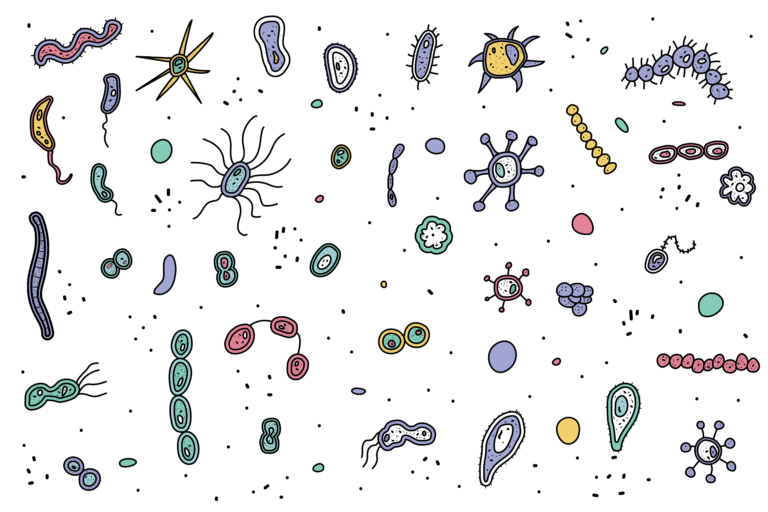
Probiotics and Prebiotics
Share
Probiotics are microbes that are beneficial to human health, (even sometimes even if they are no longer living), when consumed. They are found in the fermented foods that we are talking about here, and also in dried food supplement or capsule form. They are often similar to the microbes that are found inside our own microbiotas; Lactobacilli and Bifidoacteria are some of the most common types you might have heard of, and the yeast Sacchromyces cerevisiae. Probiotics have a number of proposed roles for us; put very simply, they can help to maintain a healthy community of microbes in your own gut, produce a huge quantity of bio-active substances, that can help your own body to function more effectively, positively influence your body’s immune response and also can help counteract the effects of metabolic disorders like obesity, type 2 diabetes and non-alcoholic fatty liver disease. Scientists are now trying to work out exactly how probiotics exert their effects upon our bodies – it’s complicated!

Healthy balanced dieting concept. Selection of rich fiber sources vegan food. Vegetables fruit seeds beans ingredients for cooking
Prebiotics are foods for your microbiota. Your diet is one of the most important influencers of gut health, so eating foods that support your own gut microbes makes sense. Prebiotics are mostly special types of dietary fibre that cannot be broken down by enzymes in the human gut, and are not able to be absorbed in the GI-tract. Instead they pass to the colon where they are fermented by your resident microbes, making end products that are beneficial to human health, such as short chain fatty acids that are important for making a strong gut lining among other things.
Dietary fibre is found only in plant-based foods. There are different types of fibre, some of which act as bulking agents for your stool, and others, such as inulin, resistant starch and fermentable oligosaccharides that provide energy for your resident gut microbes. When you have a low fibre diet, or also a very high fat one, the microbes are under-nourished. They eat too much of the top mucus layer, and work their way into the lower layer, where they shouldn’t be. They start making the wrong sort of products from their metabolism, which can be harmful to us. When the microbes or products get this far, they are sensed by the immune system and an immune, inflammatory response, can result.
Polyphenols, the compounds that colour our fruit and vegetables, are also prebiotics – this is where the phrase “ eat the rainbow” comes from! They are also found in dark chocolate, coffee and red wine, which is why these can be included in a healthy diet. Most polyphenols reach the colon where they are used as a delicious source of nutrients by the microbiota, who release beneficial metabolites from them. Polyphenols also help to maintain the microbiota balance, inhibiting potential pathogens and stimulating growth of beneficial species – the good guys – with their breakdown products.
